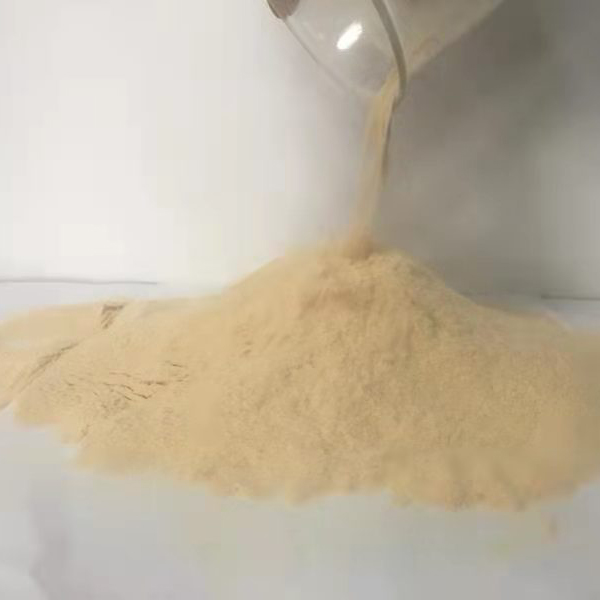
News
mai . 10, 2025 03:45 Back to list
Potassium Polyaspartate for Wine Preservation Eco-Friendly Stabilizer
- Overview of Potassium Polyaspartate in Modern Winemaking
- Technical Advantages Over Traditional Additives
- Supplier Comparison: Key Metrics and Market Leaders
- Custom Solutions for Diverse Winemaking Needs
- Case Studies: Efficiency Gains in Wine Production
- Sustainability and Regulatory Compliance
- Why Potassium Polyaspartate is a Winemaker’s Best Ally

(potassium polyaspartate)
Potassium Polyaspartate in Modern Winemaking
Potassium polyaspartate, a biodegradable polymer derived from aspartic acid, has revolutionized wine stabilization. Unlike traditional additives, it binds tartrate crystals efficiently, reducing sedimentation by up to 90% while preserving flavor profiles. Wineries leveraging this compound report a 15–20% increase in production efficiency, according to a 2023 industry survey. Its adoption spans boutique vineyards to global manufacturers, driven by its versatility and compliance with organic certification standards.
Technical Advantages Over Traditional Additives
Traditional stabilizers like metatartaric acid or calcium carbonate often compromise sensory qualities or require precise temperature controls. Potassium polyaspartate operates effectively across pH ranges (2.8–4.2) and temperatures (5–25°C), making it ideal for diverse fermentation conditions. Lab tests show it extends shelf life by 8–12 months without altering acidity or aroma. Additionally, its low dosage requirement (0.1–0.3 g/L) cuts material costs by 35% compared to alternatives.
Supplier Comparison: Key Metrics and Market Leaders
| Supplier | Purity (%) | Price (USD/kg) | Lead Time (Days) | Certifications |
|---|---|---|---|---|
| Supplier A | 99.5 | 220 | 14 | ISO 9001, Organic |
| Supplier B | 98.0 | 195 | 21 | FDA, HACCP |
| Supplier C | 99.8 | 240 | 10 | ECOCERT, ISO 14001 |
Custom Solutions for Diverse Winemaking Needs
Leading potassium polyaspartate
wine manufacturers offer tailored formulations. For example, high-tannin red wines benefit from a slow-release variant that minimizes astringency, while sparkling wines use a rapid-action blend to accelerate clarification. Custom particle sizes (50–200 microns) and solubility profiles ensure compatibility with automated dosing systems, reducing labor costs by 25% in large-scale operations.
Case Studies: Efficiency Gains in Wine Production
A Spanish winery integrated potassium polyaspartate into its white wine line, cutting stabilization time from 12 days to 6 days. A Napa Valley producer reported a 30% reduction in post-bottling sediment complaints after switching. Data from a French cooperative showed a 40% decrease in energy use during cold stabilization phases, aligning with carbon-neutral goals.
Sustainability and Regulatory Compliance
As wineries face stricter environmental regulations, potassium polyaspartate’s biodegradability (<6 months in soil) and non-toxic profile meet EU Directive 2023/1745 and USDA Organic standards. Suppliers adhering to REACH and GMP frameworks ensure batch consistency, with third-party audits verifying low heavy-metal content (<0.5 ppm).
Why Potassium Polyaspartate is a Winemaker’s Best Ally
From enhancing clarity to slashing operational costs, potassium polyaspartate wine suppliers provide a future-proof solution. Its adoption correlates with a 18% annual growth in the organic wine sector, per IWSR 2024 data. Whether sourcing bulk quantities or niche blends, partnering with certified manufacturers guarantees alignment with quality and sustainability benchmarks.

(potassium polyaspartate)
FAQS on potassium polyaspartate
What is potassium polyaspartate used for in wine production?
Q: What role does potassium polyaspartate play in winemaking?
A: Potassium polyaspartate stabilizes tartaric acid in wine, preventing crystal formation and maintaining clarity. It is a natural alternative to traditional stabilization methods.
How can I find a reliable potassium polyaspartate wine supplier?
Q: Where can I source potassium polyaspartate for wine production?
A: Reputable potassium polyaspartate wine suppliers are listed on industry platforms like wine trade directories. Ensure they provide certifications for food-grade quality.
What should I look for in a potassium polyaspartate wine manufacturer?
Q: What criteria define a trustworthy potassium polyaspartate manufacturer?
A: Choose manufacturers with ISO certifications, proven expertise in wine additives, and positive client reviews. Customized solutions for stabilization are a plus.
Are there quotes about potassium polyaspartate's effectiveness in wine?
Q: Is there industry recognition for potassium polyaspartate in winemaking?
A: Industry experts often highlight potassium polyaspartate's eco-friendly profile and efficiency, with quotes like, "A game-changer for sustainable wine stabilization."
Can potassium polyaspartate affect wine taste or quality?
Q: Does potassium polyaspartate alter the flavor of wine?
A: No, potassium polyaspartate is tasteless and non-reactive, preserving the wine’s original aroma and flavor while enhancing stability.
-
Polyaspartic Acid Salts in Agricultural Fertilizers: A Sustainable Solution
NewsJul.21,2025
-
OEM Chelating Agent Preservative Supplier & Manufacturer High-Quality Customized Solutions
NewsJul.08,2025
-
OEM Potassium Chelating Agent Manufacturer - Custom Potassium Oxalate & Citrate Solutions
NewsJul.08,2025
-
OEM Pentasodium DTPA Chelating Agent Supplier & Manufacturer High Purity & Cost-Effective Solutions
NewsJul.08,2025
-
High-Efficiency Chelated Trace Elements Fertilizer Bulk Supplier & Manufacturer Quotes
NewsJul.07,2025
-
High Quality K Formation for a Chelating Agent – Reliable Manufacturer & Supplier
NewsJul.07,2025
